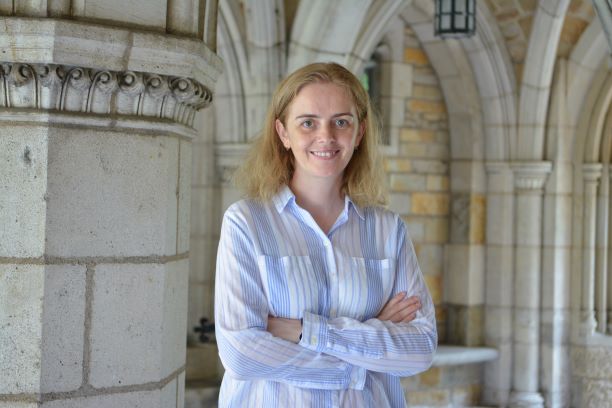Invited Talks

Ruzica Piskac
Yale University
Privacy-preserving SAT Solving
Formal methods offer a vast collection of techniques to analyze and ensure the correctness of software and hardware systems against a given specification. In fact, modern formal methods tools scale to industrial applications. Despite this significant success, privacy requirements are not considered in the design of these tools. For example, when using automated reasoning tools, the implicit requirement is that the formula to be proved is public. This raises an issue if the formula itself reveals information that is supposed to remain private to one party. To overcome this issue, we propose the concept of privacy-preserving automated reasoning.
We first consider the problem of privacy-preserving Boolean satisfiability. In this problem, two mutually distrustful parties each provides a Boolean formula. The goal is to decide whether their conjunction is satisfiable without revealing either formula to the other party. We present an algorithm to solve this problem. Our algorithm is an oblivious variant of the classic DPLL algorithm and can be integrated with existing secure two-party computation techniques.
We next turn to the problem where one party wants to prove to another party that their program satisfies a given specification without revealing the program. We split this problem into two subproblems: (1) proving that the program can be translated into a propositional formula without revealing either the program or the formula; (2) proving that the obtained formula entails the specification. To solve the latter subproblem, we developed a zero-knowledge protocol for proving the unsatisfiability of formulas in propositional logic (ZKUNSAT). Our protocol is based on a resolution proof of unsatisfiability. We encode verification of the resolution proof using polynomial equivalence checking, which enables us to use fast zero-knowledge protocols for polynomial satisfiability.
We will also outline Ou, the first programming framework that provides fully automated and optimal parallelization for zero-knowledge proofs. Zero-knowledge proofs are a powerful cryptographic primitive used in many decentralized or privacy-focused applications. However, the high overhead of ZKPs can restrict their practical applicability. The backend of Ou efficiently and automatically parallelizes ZKPs by formulating program parallelization as integer linear programming problems.
We will conclude by discussing future directions towards fully automated privacy-preserving program verification.

Anytime and exact search for planning problems
How to explore a DP-based state transition graph with A*, CP and LS?
Many planning problems may be solved with Dynamic Programming (DP) by decomposing the problem into subproblems which are recursively solved. These decompositions induce state transition graphs which are closely related to decision diagrams, and where optimal solutions correspond to best paths in the graphs. A* is a well known algorithm which extends Djikstra's algorithm with heuristics for guiding the path search. It is exact but not anytime. In other words, it computes a best path but it does not output sub-optimal paths while computing it.
In this talk, we will provide an overview of anytime extensions of A*, which compute a sequence of paths of increasing quality. We will also show how to combine them with Local Search (LS) in order to find better paths faster and with bounding and constraint propagation, in order to prune the graph. This will be illustrated using the Travelling Salesman Problem with Time Windows (TSPTW) as a running example. We will finish by presenting an experimental comparison with state-of-the-art approaches for solving the TSPTW and the time-dependent TSPTW.

Graph Learning for Planning
State of the art methods for automated planning rely on heuristic state-space search. I will present recent work on graph representation learning to guide the search of automated planners. I will introduce graph neural network and other graph learning representations that exploit the relational structure of planning domains. They allow our planner GOOSE to learn heuristic cost estimates and state rankings from solutions to just a few small problems, and solve substantially larger problems than trained on. Perhaps surprisingly, our experimental results show that classical machine learning approaches vastly outperform deep learning ones in this context. Moreover, Greedy Best-First Search guided by our best learnt heuristics rivals with the state of the art model-based planner, Lama, on the problems of the latest International Planning Competition Learning track, leading to the possibility that learnt heuristics may replace existing model-based heuristics in the near future.